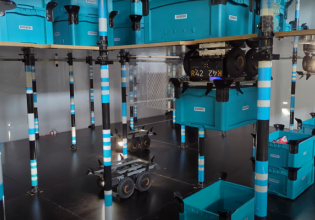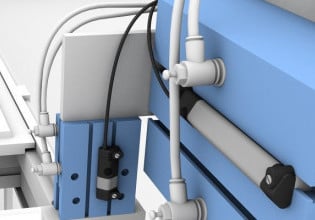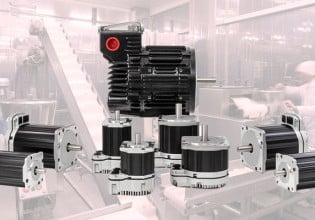ABB GoFa Robots Set to Automate XtalPi Biomedical Laboratories
ABB has supplied GoFa collaborative robots in collaboration with XtalPi in biomedical laboratories, accelerating research and improving the accuracy of data in synthesis and crystallization processes.
A recent collaboration between ABB and XtalPi will lead to faster, more efficient research in the life sciences and biomedical fields. ABB’s robotic capabilities will be implemented in XtalPi’s newest life sciences research laboratory. In this laboratory, cobots will perform numerous tasks that are prone to error, such as transporting chemicals, performing mixing operations, machine tending, and others.

ABB GoFa robots in the XtalPi lab. Image used courtesy of ABB
Cobots as Lab Partners
Everyone who has studied in a STEM field has had THAT lab partner. The one who opens containers and spills the contents. The one who knocks over beakers. The one who writes so dreadfully slowly that the actual sampling rate is well below what is needed to accurately record the experiment. Even if it’s all unintentional, humans are prone to moving slowly depending on the day or hour, making messes, or being generally unreliable.
Enter ABB as the perfect lab partner. Cobots can take over some of the mundane laboratory and research tasks that are prone to errors or are otherwise slow or boring. For example, diluting a solution to a particular molarity might be fun the first time, but not the hundredth time. Furthermore, it is easy to do poorly, especially if the same task becomes routine and less care is given to it. A cobot does not get bored and is far less likely to develop the wrong solution. Ultimately, this speeds up the time required to research new biomedical solutions, as less time is spent second-guessing results or troubleshooting differences in results due to careless errors.
Besides mixing solutions, cobots can be used to transport chemicals between laboratory spaces, tend machines, perform stirring operations, filtration operations, and many other such tasks. Basically, if a task is boring, prone to error, or slow, a cobot can be assigned to it. This also frees up “brain time” for the scientists, allowing them to focus on the big ideas instead of the details.
Collaborative Effort
XtalPi has already purchased 100 ABB GoFa cobots for use in their newest laboratory. Some will be used to work in challenging environments, such as sample storage warehouses and gloveboxes, while other robots will be designated as automated guided vehicles (AGVs) for transporting samples and materials between workstations. Others open containers, collect samples, tend to laboratory equipment, set up workstations for scientists, and other such tasks.

ABB GoFa robot performing sampling tasks in the XtalPi lab. Image used courtesy of ABB
Through this process, ABB will get valuable feedback on how to better serve the life sciences, pharmaceutical, and biosciences fields, meaning future robotic efforts will improve as well.
Collaborations for Better Life Sciences
This is an exciting collaboration, as XtalPi has already committed to purchasing these robots. By doing so, they are showing that they are willing to make this work. Once XtalPi has developed the necessary framework around these cobots, research will occur more quickly and with less error. The ultimate goal of ABB is to lead by example, with other companies following suit, meaning more healthcare and pharmaceutical solutions can be developed more quickly in the future.






